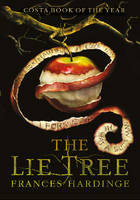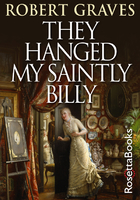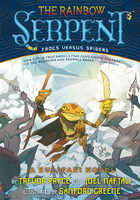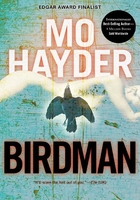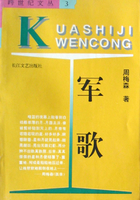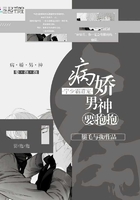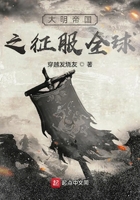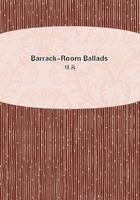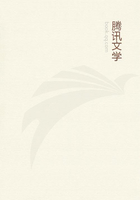A young man came out of the Victoria station, looking undecidedly at the taxi-cabs, dark-red and black, pressing against the kerb under the glass-roof. Several men in greatcoats and brass buttons jerked themselves erect to catch his attention, at the same time keeping an eye on the other people as they filtered through the open doorways of the station. Berry, however, was occupied by one of the men, a big, burly fellow whose blue eyes glared back and whose red-brown moustache bristled in defiance.
'Do you want a cab, sir?' the man asked, in a half-mocking, challenging voice.
Berry hesitated still.
'Are you Daniel Sutton?' he asked.
'Yes,' replied the other defiantly, with uneasy conscience.
'Then you are my uncle,' said Berry.
They were alike in colouring, and somewhat in features, but the taxi driver was a powerful, well-fleshed man who glared at the world aggressively, being really on the defensive against his own heart. His nephew, of the same height, was thin, well-dressed, quiet and indifferent in his manner. And yet they were obviously kin.
'And who the devil are you?' asked the taxi driver.
'I'm Daniel Berry,' replied the nephew.
'Well, I'm damned-never saw you since you were a kid.'
Rather awkwardly at this late hour the two shook hands.
'How are you, lad?'
'All right. I thought you were in Australia.'
'Been back three months-bought a couple of these damned things'-he kicked the tyre of his taxi-cab in affectionate disgust. There was a moment's silence.
'Oh, but I'm going back out there. I can't stand this cankering, rotten-hearted hell of a country any more; you want to come out to Sydney with me, lad. That's the place for you-beautiful place, oh, you could wish for nothing better. And money in it, too.-How's your mother?'
'She died at Christmas,' said the young man.
'Dead! What!-our Anna!' The big man's eyes stared, and he recoiled in fear. 'God, lad,' he said, 'that's three of 'em gone!'
The two men looked away at the people passing along the pale grey pavements, under the wall of Trinity Church.
'Well, strike me lucky!' said the taxi driver at last, out of breath. 'She wor th' best o' th' bunch of 'em. I see nowt nor hear nowt from any of 'em-they're not worth it, I'll be damned if they are-our sermon-lapping Adela and Maud,' he looked scornfully at his nephew. 'But she was the best of 'em, our Anna was, that's a fact.'
He was talking because he was afraid.
'An' after a hard life like she'd had. How old was she, lad?'
'Fifty-five.'
'Fifty-five …' He hesitated. Then, in a rather hushed voice, he asked the question that frightened him:
'And what was it, then?'
'Cancer.'
'Cancer again, like Julia! I never knew there was cancer in our family. Oh, my good God, our poor Anna, after the life she'd had!-What, lad, do you see any God at the back of that?-I'm damned if I do.'
He was glaring, very blue-eyed and fierce, at his nephew. Berry lifted his shoulders slightly.
'God?' went on the taxi driver, in a curious intense tone, 'You've only to look at the folk in the street to know there's nothing keeps it going but gravitation. Look at 'em. Look at him!'-A mongrel-looking man was nosing past. 'Wouldn't he murder you for your watch-chain, but that he's afraid of society. He's got it in him…. Look at 'em.'
Berry watched the towns-people go by, and, sensitively feeling his uncle's antipathy, it seemed he was watching a sort of danse macabre of ugly criminals.
'Did you ever see such a God-forsaken crew creeping about! It gives you the very horrors to look at 'em. I sit in this damned car and watch 'em till, I can tell you, I feel like running the cab amuck among 'em, and running myself to kingdom come-'
Berry wondered at this outburst. He knew his uncle was the black-sheep, the youngest, the darling of his mother's family. He knew him to be at outs with respectability, mixing with the looser, sporting type, all betting and drinking and showing dogs and birds, and racing. As a critic of life, however, he did not know him. But the young man felt curiously understanding. 'He uses words like I do, he talks nearly as I talk, except that I shouldn't say those things. But I might feel like that, in myself, if I went a certain road.'
'I've got to go to Watmore,' he said. 'Can you take me?'
'When d'you want to go?' asked the uncle fiercely.
'Now.'
'Come on, then. What d'yer stand gassin' on th' causeway for?'
The nephew took his seat beside the driver. The cab began to quiver, then it started forward with a whirr. The uncle, his hands and feet acting mechanically, kept his blue eyes fixed on the highroad into whose traffic the car was insinuating its way. Berry felt curiously as if he were sitting beside an older development of himself. His mind went back to his mother. She had been twenty years older than this brother of hers whom she had loved so dearly. 'He was one of the most affectionate little lads, and such a curly head! I could never have believed he would grow into the great, coarse bully he is-for he's nothing else. My father made a god of him-well, it's a good thing his father is dead. He got in with that sporting gang, that's what did it. Things were made too easy for him, and so he thought of no one but himself, and this is the result.'
Not that 'Joky' Sutton was so very black a sheep. He had lived idly till he was eighteen, then had suddenly married a young, beautiful girl with clear brows and dark grey eyes, a factory girl. Having taken her to live with his parents he, lover of dogs and pigeons, went on to the staff of a sporting paper. But his wife was without uplift or warmth. Though they made money enough, their house was dark and cold and uninviting. He had two or three dogs, and the whole attic was turned into a great pigeon-house. He and his wife lived together roughly, with no warmth, no refinement, no touch of beauty anywhere, except that she was beautiful. He was a blustering, impetuous man, she was rather cold in her soul, did not care about anything very much, was rather capable and close with money. And she had a common accent in her speech. He outdid her a thousand times in coarse language, and yet that cold twang in her voice tortured him with shame that he stamped down in bullying and in becoming more violent in his own speech.
Only his dogs adored him, and to them, and to his pigeons, he talked with rough, yet curiously tender caresses while they leaped and fluttered for joy.
After he and his wife had been married for seven years a little girl was born to them, then later, another. But the husband and wife drew no nearer together. She had an affection for her children almost like a cool governess. He had an emotional man's fear of sentiment, which helped to nip his wife from putting out any shoots. He treated his children roughly, and pretended to think it a good job when one was adopted by a well-to-do maternal aunt. But in his soul he hated his wife that she could give away one of his children. For after her cool fashion, she loved him. With a chaos of a man such as he, she had no chance of being anything but cold and hard, poor thing. For she did love him.
In the end he fell absurdly and violently in love with a rather sentimental young woman who read Browning. He made his wife an allowance and established a new ménage with the young lady, shortly after emigrating with her to Australia. Meanwhile his wife had gone to live with a publican, a widower, with whom she had had one of those curious, tacit understandings of which quiet women are capable, something like an arrangement for provision in the future.
This was as much as the nephew knew. He sat beside his uncle, wondering how things stood at the present. They raced lightly out past the cemetery and along the boulevard, then turned into the rather grimy country. The mud flew out on either side, there was a fine mist of rain which blew in their faces. Berry covered himself up.
In the lanes the high hedges shone black with rain. The silvery grey sky, faintly dappled, spread wide over the low, green land. The elder man glanced fiercely up the road, then turned his red face to his nephew.
'And how're you going on, lad?' he said loudly. Berry noticed that his uncle was slightly uneasy of him. It made him also uncomfortable. The elder man had evidently something pressing on his soul.
'Who are you living with in town?' asked the nephew. 'Have you gone back to Aunt Maud?'
'No,' barked the uncle. 'She wouldn't have me. I offered to-I want to-but she wouldn't.'
'You're alone, then?'
'No, I'm not alone.'
He turned and glared with his fierce blue eyes at his nephew, but said no more for some time. The car ran on through the mud, under the wet wall of the park.
'That other devil tried to poison me,' suddenly shouted the elder man. 'The one I went to Australia with.' At which, in spite of himself, the younger smiled in secret.
'How was that?' he asked.
'Wanted to get rid of me. She got in with another fellow on the ship…. By Jove, I was bad.'
'Where?-on the ship?'
'No,' bellowed the other. 'No. That was in Wellington, New Zealand. I was bad, and got lower an' lower-couldn't think what was up. I could hardly crawl about. As certain as I'm here, she was poisoning me, to get to th' other chap-I'm certain of it.'
'And what did you do?'
'I cleared out-went to Sydney-'
'And left her?'
'Yes, I thought begod, I'd better clear out if I wanted to live.'
'And you were all right in Sydney?'
'Better in no time-I know she was putting poison in my coffee.'
'Hm!'
There was a glum silence. The driver stared at the road ahead, fixedly, managing the car as if it were a live thing. The nephew felt that his uncle was afraid, quite stupefied with fear, fear of life, of death, of himself.
'You're in rooms, then?' asked the nephew.
'No, I'm in a house of my own,' said the uncle defiantly, 'wi' th' best little woman in th' Midlands. She's a marvel.-Why don't you come an' see us?'
'I will. Who is she?'
'Oh, she's a good girl-a beautiful little thing. I was clean gone on her first time I saw her. An' she was on me. Her mother lives with us-respectable girl, none o' your….'
'And how old is she?'
'-how old is she?-she's twenty-one.'
'Poor thing.'
'She's right enough.'
'You'd marry her-getting a divorce-?'
'I shall marry her.'
There was a little antagonism between the two men.
'Where's Aunt Maud?' asked the younger.
'She's at the Railway Arms-we passed it, just against Rollin's Mill Crossing…. They sent me a note this morning to go an' see her when I can spare time. She's got consumption.'
'Good Lord! Are you going?'
'Yes-'
But again Berry felt that his uncle was afraid.
The young man got through his commission in the village, had a drink with his uncle at the inn, and the two were returning home. The elder man's subject of conversation was Australia. As they drew near the town they grew silent, thinking both of the public-house. At last they saw the gates of the railway crossing were closed before them.
'Shan't you call?' asked Berry, jerking his head in the direction of the inn, which stood at the corner between two roads, its sign hanging under a bare horse-chestnut tree in front.
'I might as well. Come in an' have a drink,' said the uncle.
It had been raining all the morning, so shallow pools of water lay about. A brewer's wagon, with wet barrels and warm-smelling horses, stood near the door of the inn. Everywhere seemed silent, but for the rattle of trains at the crossing. The two men went uneasily up the steps and into the bar. The place was paddled with wet feet, empty. As the bar-man was heard approaching, the uncle asked, his usual bluster slightly hushed by fear:
'What yer goin' ta have, lad? Same as last time?'
A man entered, evidently the proprietor. He was good-looking, with a long, heavy face and quick, dark eyes. His glance at Sutton was swift, a start, a recognition, and a withdrawal, into heavy neutrality.
'How are yer, Dan?' he said, scarcely troubling to speak.
'Are yer, George?' replied Sutton, hanging back. 'My nephew, Dan Berry.
Give us Red Seal, George.'
The publican nodded to the younger man, and set the glasses on the bar. He pushed forward the two glasses, then leaned back in the dark corner behind the door, his arms folded, evidently preferring to get back from the watchful eyes of the nephew.
'-'s luck,' said Sutton.
The publican nodded in acknowledgement. Sutton and his nephew drank.
'Why the hell don't you get that road mended in Cinder Hill-,' said Sutton fiercely, pushing back his driver's cap and showing his short-cut, bristling hair.
'They can't find it in their hearts to pull it up,' replied the publican, laconically.
'Find in their hearts! They want settin' in barrows an' runnin' up an' down it till they cried for mercy.'
Sutton put down his glass. The publican renewed it with a sure hand, at ease in whatsoever he did. Then he leaned back against the bar. He wore no coat. He stood with arms folded, his chin on his chest, his long moustache hanging. His back was round and slack, so that the lower part of his abdomen stuck forward, though he was not stout. His cheek was healthy, brown-red, and he was muscular. Yet there was about him this physical slackness, a reluctance in his slow, sure movements. His eyes were keen under his dark brows, but reluctant also, as if he were gloomily apathetic.
There was a halt. The publican evidently would say nothing. Berry looked at the mahogany bar-counter, slopped with beer, at the whisky-bottles on the shelves. Sutton, his cap pushed back, showing a white brow above a weather-reddened face, rubbed his cropped hair uneasily.
The publican glanced round suddenly. It seemed that only his dark eyes moved.
'Going up?' he asked.
And something, perhaps his eyes, indicated the unseen bed-chamber.
'Ay-that's what I came for,' replied Sutton, shifting nervously from one foot to the other. 'She's been asking for me?'
'This morning,' replied the publican, neutral.
Then he put up a flap of the bar, and turned away through the dark doorway behind. Sutton, pulling off his cap, showing a round, short-cropped head which now was ducked forward, followed after him, the buttons holding the strap of his great-coat behind glittering for a moment.
They climbed the dark stairs, the husband placing his feet carefully, because of his big boots. Then he followed down the passage, trying vaguely to keep a grip on his bowels, which seemed to be melting away, and definitely wishing for a neat brandy. The publican opened a door. Sutton, big and burly in his great-coat, went past him.
The bedroom seemed light and warm after the passage. There was a red eider-down on the bed. Then, making an effort, Sutton turned his eyes to see the sick woman. He met her eyes direct, dark, dilated. It was such a shock he almost started away. For a second he remained in torture, as if some invisible flame were playing on him to reduce his bones and fuse him down. Then he saw the sharp white edge of her jaw, and the black hair beside the hollow cheek. With a start he went towards the bed.
'Hello, Maud!' he said. 'Why, what ye been doin'?'
The publican stood at the window with his back to the bed. The husband, like one condemned but on the point of starting away, stood by the bedside staring in horror at his wife, whose dilated grey eyes, nearly all black now, watched him wearily, as if she were looking at something a long way off.
Going exceedingly pale, he jerked up his head and stared at the wall over the pillows. There was a little coloured picture of a bird perched on a bell, and a nest among ivy leaves beneath. It appealed to him, made him wonder, roused a feeling of childish magic in him. They were wonderfully fresh, green ivy leaves, and nobody had seen the nest among them save him.
Then suddenly he looked down again at the face on the bed, to try and recognize it. He knew the white brow and the beautiful clear eyebrows. That was his wife, with whom he had passed his youth, flesh of his flesh, his, himself. Then those tired eyes, which met his again from a long way off, disturbed him until he did not know where he was. Only the sunken cheeks, and the mouth that seemed to protrude now were foreign to him, and filled him with horror. It seemed he lost his identity. He was the young husband of the woman with the clear brows; he was the married man fighting with her whose eyes watched him, a little indifferently, from a long way off; and he was a child in horror of that protruding mouth.
There came a crackling sound of her voice. He knew she had consumption of the throat, and braced himself hard to bear the noise.
'What was it, Maud?' he asked in panic.
Then the broken, crackling voice came again. He was too terrified of the sound of it to hear what was said. There was a pause.
'You'll take Winnie?' the publican's voice interpreted from the window.
'Don't you bother, Maud, I'll take her,' he said, stupefying his mind so as not to understand.
He looked curiously round the room. It was not a bad bedroom, light and warm. There were many medicine bottles aggregated in a corner of the washstand-and a bottle of Three Star brandy, half full. And there were also photographs of strange people on the chest of drawers. It was not a bad room.
Again he started as if he were shot. She was speaking. He bent down, but did not look at her.
'Be good to her,' she whispered.
When he realized her meaning, that he should be good to their child when the mother was gone, a blade went through his flesh.
'I'll be good to her, Maud, don't you bother,' he said, beginning to feel shaky.
He looked again at the picture of the bird. It perched cheerfully under a blue sky, with robust, jolly ivy leaves near. He was gathering his courage to depart. He looked down, but struggled hard not to take in the sight of his wife's face.
'I s'll come again, Maud,' he said. 'I hope you'll go on all right. Is there anything as you want?'
There was an almost imperceptible shake of the head from the sick woman, making his heart melt swiftly again. Then, dragging his limbs, he got out of the room and down the stairs.
The landlord came after him.
'I'll let you know if anything happens,' the publican said, still laconic, but with his eyes dark and swift.
'Ay, a' right,' said Sutton blindly. He looked round for his cap, which he had all the time in his hand. Then he got out of doors.
In a moment the uncle and nephew were in the car jolting on the level crossing. The elder man seemed as if something tight in his brain made him open his eyes wide, and stare. He held the steering wheel firmly. He knew he could steer accurately, to a hair's breadth. Glaring fixedly ahead, he let the car go, till it bounded over the uneven road. There were three coal-carts in a string. In an instant the car grazed past them, almost biting the kerb on the other side. Sutton aimed his car like a projectile, staring ahead. He did not want to know, to think, to realize, he wanted to be only the driver of that quick taxi.
The town drew near, suddenly. There were allotment-gardens with dark-purple twiggy fruit-trees and wet alleys between the hedges. Then suddenly the streets of dwelling-houses whirled close, and the car was climbing the hill, with an angry whirr,-up-up-till they rode out on to the crest and could see the tram-cars, dark-red and yellow, threading their way round the corner below, and all the traffic roaring between the shops.
'Got anywhere to go?' asked Sutton of his nephew.
'I was going to see one or two people.'
'Come an' have a bit o' dinner with us,' said the other.
Berry knew that his uncle wanted to be distracted, so that he should not think nor realize. The big man was running hard away from the horror of realization.
'All right,' Berry agreed.
The car went quickly through the town. It ran up a long street nearly into the country again. Then it pulled up at a house that stood alone, below the road.
'I s'll be back in ten minutes,' said the uncle.
The car went on to the garage. Berry stood curiously at the top of the stone stairs that led from the highroad down to the level of the house, an old stone place. The garden was dilapidated. Broken fruit-trees leaned at a sharp angle down the steep bank. Right across the dim grey atmosphere, in a kind of valley on the edge of the town, new suburb-patches showed pinkish on the dark earth. It was a kind of unresolved borderland.
Berry went down the steps. Through the broken black fence of the orchard, long grass showed yellow. The place seemed deserted. He knocked, then knocked again. An elderly woman appeared. She looked like a housekeeper. At first she said suspiciously that Mr. Sutton was not in.
'My uncle just put me down. He'll be in in ten minutes,' replied the visitor.
'Oh, are you the Mr. Berry who is related to him?' exclaimed the elderly woman. 'Come in-come in.'
She was at once kindly and a little bit servile. The young man entered. It was an old house, rather dark, and sparsely furnished. The elderly woman sat nervously on the edge of one of the chairs in a drawing-room that looked as if it were furnished from dismal relics of dismal homes, and there was a little straggling attempt at conversation. Mrs. Greenwell was evidently a working class woman unused to service or to any formality.
Presently she gathered up courage to invite her visitor into the dining-room. There from the table under the window rose a tall, slim girl with a cat in her arms. She was evidently a little more lady-like than was habitual to her, but she had a gentle, delicate, small nature. Her brown hair almost covered her ears, her dark lashes came down in shy awkwardness over her beautiful blue eyes. She shook hands in a frank way, yet she was shrinking. Evidently she was not sure how her position would affect her visitor. And yet she was assured in herself, shrinking and timid as she was.
'She must be a good deal in love with him,' thought Berry.
Both women glanced shamefacedly at the roughly laid table. Evidently they ate in a rather rough and ready fashion.
Elaine-she had this poetic name-fingered her cat timidly, not knowing what to say or to do, unable even to ask her visitor to sit down. He noticed how her skirt hung almost flat on her hips. She was young, scarce developed, a long, slender thing. Her colouring was warm and exquisite.
The elder woman bustled out to the kitchen. Berry fondled the terrier dogs that had come curiously to his heels, and glanced out of the window at the wet, deserted orchard.
This room, too, was not well furnished, and rather dark. But there was a big red fire.
'He always has fox terriers,' he said.
'Yes,' she answered, showing her teeth in a smile.
'Do you like them, too?'
'Yes'-she glanced down at the dogs. 'I like Tam better than Sally-'
Her speech always tailed off into an awkward silence.
'We've been to see Aunt Maud,' said the nephew.
Her eyes, blue and scared and shrinking, met his.
'Dan had a letter,' he explained. 'She's very bad.'
'Isn't it horrible!' she exclaimed, her face crumbling up with fear.
The old woman, evidently a hard-used, rather down-trodden workman's wife, came in with two soup-plates. She glanced anxiously to see how her daughter was progressing with the visitor.
'Mother, Dan's been to see Maud,' said Elaine, in a quiet voice full of fear and trouble.
The old woman looked up anxiously, in question.
'I think she wanted him to take the child. She's very bad, I believe,' explained Berry.
'Oh, we should take Winnie!' cried Elaine. But both women seemed uncertain, wavering in their position. Already Berry could see that his uncle had bullied them, as he bullied everybody. But they were used to unpleasant men, and seemed to keep at a distance.
'Will you have some soup?' asked the mother, humbly.
She evidently did the work. The daughter was to be a lady, more or less, always dressed and nice for when Sutton came in.
They heard him heavily running down the steps outside. The dogs got up. Elaine seemed to forget the visitor. It was as if she came into life. Yet she was nervous and afraid. The mother stood as if ready to exculpate herself.
Sutton burst open the door. Big, blustering, wet in his immense grey coat, he came into the dining-room.
'Hello!' he said to his nephew, 'making yourself at home?'
'Oh, yes,' replied Berry.
'Hello, Jack,' he said to the girl. 'Got owt to grizzle about?'
'What for?' she asked, in a clear, half-challenging voice, that had that peculiar twang, almost petulant, so female and so attractive. Yet she was defiant like a boy.
'It's a wonder if you haven't,' growled Sutton. And, with a really intimate movement, he stooped down and fondled his dogs, though paying no attention to them. Then he stood up, and remained with feet apart on the hearthrug, his head ducked forward, watching the girl. He seemed abstracted, as if he could only watch her. His great-coat hung open, so that she could see his figure, simple and human in the great husk of cloth. She stood nervously with her hands behind her, glancing at him, unable to see anything else. And he was scarcely conscious but of her. His eyes were still strained and staring, and as they followed the girl, when, long-limbed and languid, she moved away, it was as if he saw in her something impersonal, the female, not the woman.
'Had your dinner?' he asked.
'We were just going to have it,' she replied, with the same curious little vibration in her voice, like the twang of a string.
The mother entered, bringing a saucepan from which she ladled soup into three plates.
'Sit down, lad,' said Sutton. 'You sit down, Jack, an' give me mine here.'
'Oh, aren't you coming to table?' she complained.
'No, I tell you,' he snarled, almost pretending to be disagreeable. But she was slightly afraid even of the pretence, which pleased and relieved him. He stood on the hearthrug eating his soup noisily.
'Aren't you going to take your coat off?' she said. 'It's filling the place full of steam.'
He did not answer, but, with his head bent forward over the plate, he ate his soup hastily, to get it done with. When he put down his empty plate, she rose and went to him.
'Do take your coat off, Dan,' she said, and she took hold of the breast of his coat, trying to push it back over his shoulder. But she could not. Only the stare in his eyes changed to a glare as her hand moved over his shoulder. He looked down into her eyes. She became pale, rather frightened-looking, and she turned her face away, and it was drawn slightly with love and fear and misery. She tried again to put off his coat, her thin wrists pulling at it. He stood solidly planted, and did not look at her, but stared straight in front. She was playing with passion, afraid of it, and really wretched because it left her, the person, out of count. Yet she continued. And there came into his bearing, into his eyes, the curious smile of passion, pushing away even the death-horror. It was life stronger than death in him. She stood close to his breast. Their eyes met, and she was carried away.
'Take your coat off, Dan,' she said coaxingly, in a low tone meant for no one but him. And she slid her hands on his shoulder, and he yielded, so that the coat was pushed back. She had flushed, and her eyes had grown very bright. She got hold of the cuff of his coat. Gently, he eased himself, so that she drew it off. Then he stood in a thin suit, which revealed his vigorous, almost mature form.
'What a weight!' she exclaimed, in a peculiar penetrating voice, as she went out hugging the overcoat. In a moment she came back.
He stood still in the same position, a frown over his fiercely staring eyes. The pain, the fear, the horror in his breast were all burning away in the new, fiercest flame of passion.
'Get your dinner,' he said roughly to her.
'I've had all I want,' she said. 'You come an' have yours.'
He looked at the table as if he found it difficult to see things.
'I want no more,' he said.
She stood close to his chest. She wanted to touch him and to comfort him. There was something about him now that fascinated her. Berry felt slightly ashamed that she seemed to ignore the presence of others in the room.
The mother came in. She glanced at Sutton, standing planted on the hearthrug, his head ducked, the heavy frown hiding his eyes. There was a peculiar braced intensity about him that made the elder woman afraid. Suddenly he jerked his head round to his nephew.
'Get on wi' your dinner, lad,' he said, and he went to the door. The dogs, which had continually lain down and got up again, uneasy, now rose and watched. The girl went after him, saying, clearly:
'What did you want, Dan?'
Her slim, quick figure was gone, the door was closed behind her.
There was silence. The mother, still more slave-like in her movement, sat down in a low chair. Berry drank some beer.
'That girl will leave him,' he said to himself. 'She'll hate him like poison. And serve him right. Then she'll go off with somebody else.'
And she did.

